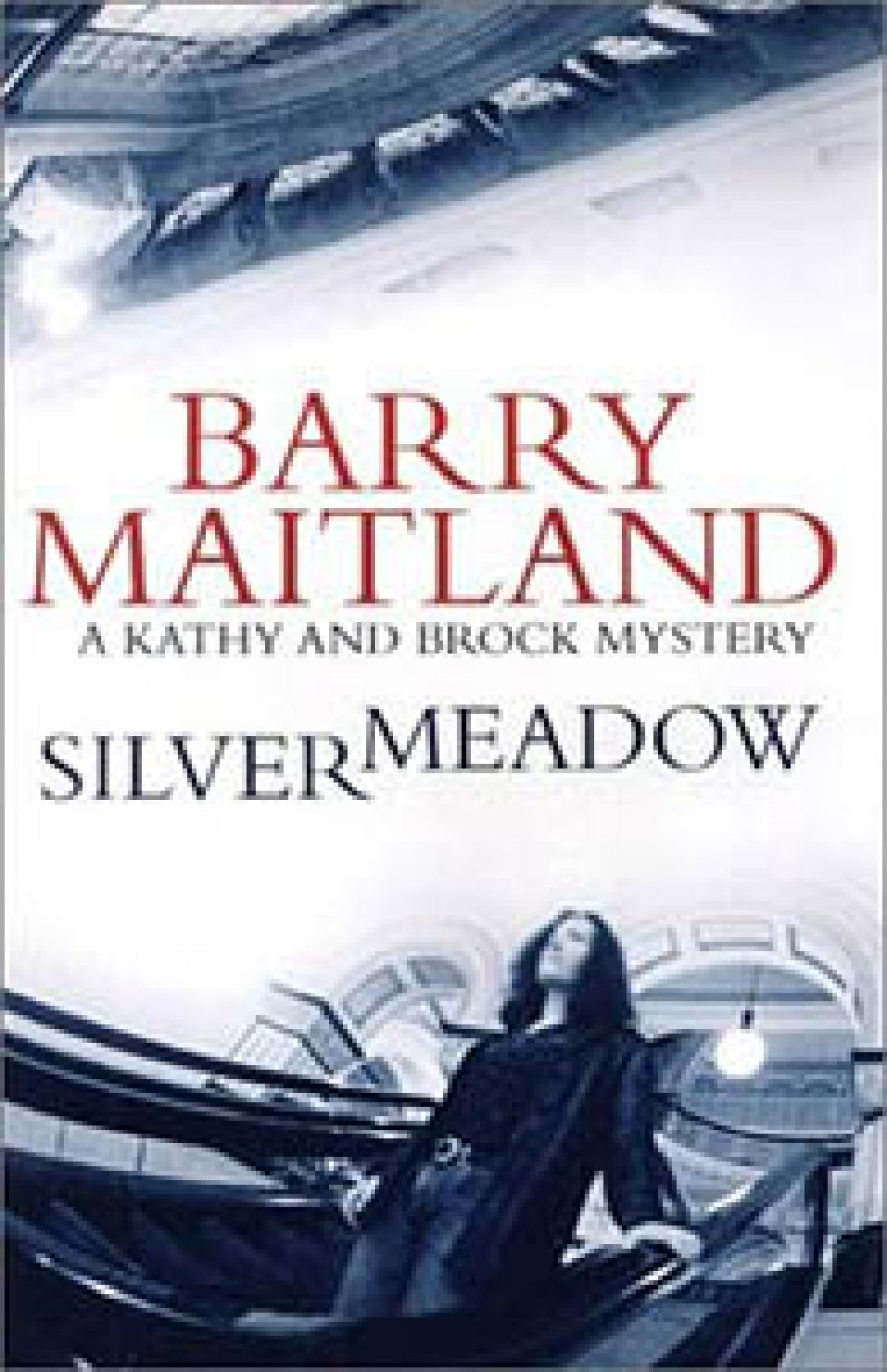
- Free Article: No
- Contents Category: Fiction
- Review Article: Yes
- Online Only: No
- Custom Highlight Text:
Five pages from the end of Silver Meadow, the hair on the back of my neck stood up, an effect not only of the thrilling denouement, but also a genuine frisson of aesthetic delight at a perfectly judged conclusion. Silver Meadow is a book which deserves to be noticed, not only by devotees of the police procedural (it is at least as good as anything Rendell, James or Rankin have written) but also by anyone with an interest in narrative form, the politics of contemporary space and/or rampant consumerism. This is a ‘seriously’ good book about sex and shopping.
- Book 1 Title: Silver Meadow
- Book 1 Subtitle: A Kathy and Brock mystery
- Book 1 Biblio: Allen & Unwin, $24.95 pb, 346 pp
- Book 2 Title: An Uncertain Death
- Book 2 Biblio: The Women’s Press, $18.95 pb, 303 pp
- Book 2 Cover Small (400 x 600):

- Book 2 Cover (800 x 1200):

- Book 2 Cover Path (no longer required): images/ABR_Digitising_2021/Archives_and_Online_Exclusives/morwood uncertain death.jpg
Born in Scotland, Maitland is Professor of Architecture at the University of Newcastle, NSW. Maitland thus counts (by a technicality) as an Australian author even though his five crime novels featuring senior policeman David Brock and his junior associate, Kathy Kolla, are all set in the UK. The first of these, The Marx Sisters, originally published in 1992 and nominated for the John Creasey Award for best first crime novel, has just been re-released by Allen and Unwin. However, what links The Marx Sisters to Silver Meadow is not simply their central characters, but an acute attention to place (not surprising given the author’s day job) and to the relationships which different kinds of place enable and express.
The Marx Sisters gave us Jerusalem Lane, one of those narrow car-less London streets evocative of another era, and a different deployment of social space. In the lane the past is written into the very fabric of the buildings (the secondhand bookshop, the deli, the café) and the people who inhabit them. Residents of the lane include the three eponymous sisters who are indeed descendants of Karl Marx; and their neighbours, emigrés and refugees from the continent who brought their culture and their coffee to a new and safer (well it is until the murder) setting.
Silver Meadow is another kind of place altogether, a supermall in Essex built on a Saxon burial site, a commercial Disneyland offering a million square feet of trading space and 268 shops in which the next generation of Europeans can spend their Euros alongside the depressed inhabitants of the neighbouring housing estates who go there because there’s nowhere to go but the shops. As a shopping centre, Silver Meadow is thus the realisation of left-wing cultural critic Frederic Jameson’s worst nightmare: postmodern architecture meets late-capitalism somewhere between the food court (featuring the Taste of Five continents), the Plaza Mexico (complete with yucca and cactus), and the Hawaiian experience where mesmerised shoppers can watch Mount Mauna Loa erupt every hour on the hour.
All apparent surface, Silver Meadow’s glittering malls conceal their own dark core. A young woman is found dead, compressed and wrapped in plastic, reduced to a disposable unit in a place which depends on a high turn-over of profit and people. A murdering bank robber from Kolla and Brock’s past is spotted eyeing up a badger in Cuddles, the toy shop with the mantra which employees are forced to recite ‘We aim to bring joy to young and old through the medium of soft cuddly toys’. A homeless boy who lives in the ventilation pipes of the centre is found dead of an overdose in the home of the extremely spooky and also dead surveillance guard who has been taping the centre’s secret goings on.
As Kathy Kolla gradually realises:
Silver Meadow wasn’t innocent. From start to finish the centre was calculated and manipulative, dressed up to deceive. If it had been a suspect rather than a place, she would have said its manner was guilty as hell.
And so Maitland brings Silver Meadow to account, connecting the past to the present (the Saxon burial site becomes a tragic symbol), and resolving an extraordinary number of plot lines in a feat of narrative prestidigitation which is indeed magical. Sublime crime.
Meanwhile, Carolyn Morwood’s second novel, An Uncertain Death, suffers by comparison: not only with Maitland’s latest effort, but also with her first, The Blessing File, which in its treatment of Flinders Lane bore some comparison with Maitland’s The Marx Sisters. An Uncertain Death is set in St Kilda, but doesn’t realise this locale with much conviction. Our heroine, Marlo Shaw, thinks and sounds a lot like Lyn Blessing: an effect of their shared reticence and Morwood’s apparent dedication to the present tense which this time around leads to a flatness of tone which is at times deadening.
To give Morwood her due, she has endeavoured to write a classic murder mystery, playing fair with the reader by giving them all the clues along the way. Unfortunately, having spotted the early vital signs, this reader read on only to watch how the author might achieve closure. Classic and elegant though this formula might be, the result is a ‘thin’ story lacking the depth, the narrative complexity and the miraculous order out of incoherent chaos which the best contemporary crime fiction can achieve. Morwood has managed it once: maybe next time she will again.


Comments powered by CComment